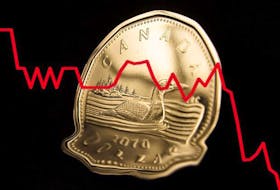Q: It feels like I’ve been in debt forever. Even while I was married and we both earned enough to pay our bills, it seemed like no matter how much we paid, debt was the silent partner in our marriage. Now that I’m on my own again and have been surviving on pandemic pay since before the summer, I’m really worried that at any minute I’ll get evicted because I can’t pay my rent. I tried consolidating my debt a few years ago because I had big legal bills from my divorce, but that never really got me out of debt either. A friend suggested that I get it over with and declare bankruptcy, but I’m just not sure I’m ready to do something that drastic. Can you give me some advice? ~ Elise
A: Debt is unfortunately the silent resident that rears its ugly head in too many Canadian households and the longer we ignore our debt, the worse it will get. If someone is borrowing money to pay for essential expenses between paycheques, only making minimum payments, receiving past-due notices or collection calls, and hoping their cards won’t be declined at the grocery store, it’s time to find a more effective way to deal with their debts. While these trying times haven’t made things any easier, thankfully there are more options than most people realize for getting back on track.
When it comes to bankruptcy, it is a serious step with long-term consequences. It is worth considering, but only after all other options have been explored. To your creditors it means that you are insolvent and unable to manage your financial affairs. You verify this for your creditors by supplying income and expense statements each month through your trustee until you obtain your discharge. In Canada, licensed insolvency trustees, formerly known as bankruptcy trustees, guide you through the process, complete the paperwork, and inform the court along the way. Their actions and fees are determined by the Office of the Superintendent of Bankruptcy (OSB) and governed by the Bankruptcy and Insolvency Act (BIA).
With that in mind, here are some things to consider as you look for ways to resolve your debt problems.
Think about the reasons behind your debt
Before you can decide what you need to do to get your financial life back on track, think about why you continue to struggle with debt. This will help determine which solution will work best for you. Try to consider your circumstances in light of your overall situation, not just with COVID in mind.
Ask yourself, do you use a budget to help guide your spending decisions? When you’re working, do you budget to set even small amounts of money aside for emergencies, unexpected expenses and goals? What are your income prospects for the next three to five years? When you took out the consolidation loan, what lifestyle choices did you struggle to make as you tried to bring your expenses in line with your income? What are the non-financial issues that have contributed to your situation?
Resist the urge to answer these questions with what you should be doing; think instead about what you are doing. Evaluating your money management habits accurately will help point you towards a realistic solution for your debt problems that benefits you not just now, but in the long term as well.
What Would a Financial Throwback Reveal About Your Finances?
Myths and facts about bankruptcy
Bankruptcy can seem like an easy way to get out of debt and fix your credit rating. The reality, however, is that when a person files for bankruptcy it is recorded on their credit bureau report and stays there for at least six years. During this time, it will be very difficult to obtain credit, it can affect your job choices, and it can even prevent you from renting the home you want.
Bankruptcy also has a huge emotional cost. Feelings of shame and regret can remain with a person long after the information has been removed from their credit report. This is due in part to the fact that once you declare bankruptcy, there’s no turning back. It remains part of a permanent, searchable database and needs to be declared if you’re asked if you’ve ever gone bankrupt.
Public perception is that anyone can go bankrupt. While bankruptcy is a viable option for some people, there are costs and fees for declaring bankruptcy and it is not the right solution for everyone. Depending upon your income level and the assets that you own, it can be a very expensive way to resolve your financial problems, and it might not even deal with all of your debts.
Secured debts like a mortgage or car loan cannot be included in a bankruptcy. Student loans are generally excluded from a bankruptcy if it has been less than seven years from when someone stopped studying. This rule is in place to help ensure that the student-loan system, which is largely self-funded, is available to everyone who qualifies to use it. There are other debts that survive a bankruptcy filing, and declaring bankruptcy on joint debts will impact the other borrower.
Bankruptcy, however, doesn’t mean that you automatically lose everything you own. Most provinces allow you to keep your clothing and basic household furnishings as long as their value doesn’t exceed certain provincial limits. You are also allowed to keep necessary medical and health-related equipment. Some provinces have provisions that allow you to keep a modest-priced vehicle and your home as long you don’t have a lot of equity in them. You may also be able to keep the tools of your trade that you need to earn a living, as long as they do not exceed a certain amount.
Can You File for Bankruptcy and Keep Your House?
Consider other options and alternatives to bankruptcy
Bankruptcy is known as a solution of last resort, not to solve a short-term cash crunch. That’s why it’s important to reflect on the origins of your debt problems. Canadian bankruptcy laws are designed to provide legal protection for people in severe financial hardship and to give them an opportunity for a fresh start. You owe it to yourself to carefully explore all of your options and the implications of each.
Alternatives to bankruptcy include debt consolidation loans, debt repayment programs, debt settlements, consumer proposals, or even communicating with your creditors because you’ve got no ability to repay your debts for the foreseeable future and you’ve got no assets to sell to generate a lump-sum payment. Contact a credit counsellor at a non-profit agency in your area to help you weigh the pros and cons of each option. This service is provided at no cost, and if bankruptcy looks like it will be a good option for you, the credit counsellor will refer you to reputable trustees in your area.
6 Times When Bankruptcy Might Not Be Right for You
Identify what you can do to manage money better
One of the things the credit counsellor will review with you is your budget. You might be surprised to learn that many people struggle with debt because they never developed good money skills. Credit then masks the problem and makes it easy to spend more than you earn.
When you’re looking to get rid of debt, you’ll find success more easily if you pair a realistic debt-relief option with a solid system to gain new money skills . This could mean learning to live with a budget , researching online for frugal living tips , keeping better track of where you spend your money, locking up your credit cards temporarily, or going on a cash-only diet to reset how you make your spending choices. When you deal with the reasons behind your debt and learn money skills to break old habits, that’s what will put you back in control of your finances.
The 8 Building Blocks of Effective Money Management
The bottom line on dealing with debt and avoiding money worries
Most people don’t start to worry about their debt until it has built up over a long enough period of time to become too stressful to ignore. However, with a clear understanding of what caused your financial difficulties, you will not only be in a good position to determine the solution that’s right for you, it will be easier to avoid getting into debt again. It’s never easy admitting that you need help with something you’re unsure about. However, the reality is that most people feel tremendous relief once they get the information they need to deal with their debts, address the reasons why their debt occurred in the first place, and once again have a reason to look forward to a more stable financial future.
Related reading:
How to Rebuild Your Credit Rating After Bankruptcy
3 Ways People Destroy Their Credit
An Overview of the 10 Steps of the Bankruptcy Process in Canada
Scott Hannah is president of the Credit Counselling Society, a non-profit organization. For more information about managing your money or debt, contact Scott by email , check nomoredebts.org or call 1-888-527-8999.
Copyright Postmedia Network Inc., 2020








